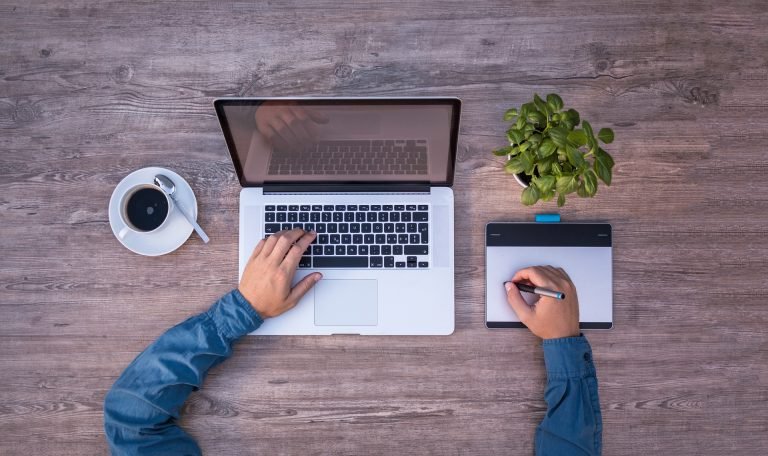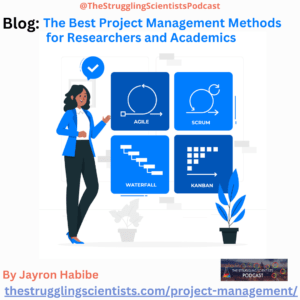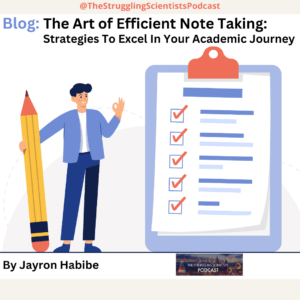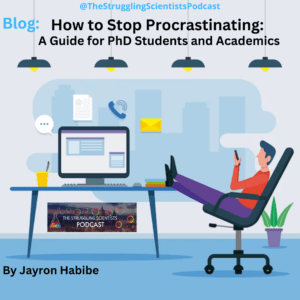6 Work-life Balance Tips for PhD Students
I think balance in anything is always good however when it comes to obtaining work-life balance achieving it is going to depend on your individual needs and circumstances.
On the surface, the term is self-explanatory and sounds great. Especially when it can reduce symptoms of fatigue, help lower stress levels and increase our work and life satisfaction.
Who wouldn’t want to achieve a good, healthy, and sustainable harmony between their career and the rest of their life?
Exactly! …Supervisors!
JK of course😉
But in all seriousness, while we all know what work-life balance is it can be quite difficult to achieve so with that said here are 6 tips that will hopefully help you in achieving said balance and making sure to prioritize all the things you deem important!
Ultimately this list will probably contain some things you don’t care about at all or things that are of vital importance to you. Feel free to pick and choose which tips resonate with you and try them out. The goal after all is to get closer to a balanced state for us and everyone’s definition of that might differ.

Here are 6 tips to help you get closer to your ideal work-life balance
Tip #1. Start saying no more often
You won’t have this option for everything but it’s important to start exercising your “no muscles” before they atrophy and you are spread too thin. Maybe this means that some experiments will take longer or you will have to pass up going to a conference here and there but in the long run prioritizing your mental health and your health is more important.
This is one of the things I struggle with a lot myself as I’m quite a people pleaser and I often feel like I’m letting people down if I say no but sometimes you just have to. For my fellow people-pleasers out there, It helps to think of it as you want to give people your best and you can only do that if you are focused, energized, and happy. If you are unfocused, tired, and depressed then you aren’t going to be much help to the latest person asking you for something anyway so you’re better off just being direct and honest with no. In the end, it’s the best thing you can do for both you and them.
Tip #2. Schedule regular breaks
The best of both worlds, you get to be productive and still take breaks, all while eliminating the feeling of guilt associated with procrastination!
I like this one because it’s easy to do and there are ways of doing it while still being very productive. The Pomodoro technique is one such method and it involves setting a timer and focussing on work for 25 mins then taking a 5 min break and rinse and repeat.
I use it myself for my writing sessions or for doing stuff related to the podcast and it works while taking the stress off of having to make a ton of progress when you start something. By scheduling regular breaks we get to still make progress in a way that accounts for us being human and needing breaks every once in a while. While on these breaks make sure to do something that you enjoy and that energizes you, whether that’s going for a short walk or getting a cup of coffee, or talking with a colleague, doesn’t matter just do you.
Tip #3. Take care of your health
Your health is your number one asset in life. As long as you are healthy you have options but as soon as you aren’t those options evaporate quickly. Now just to be clear here I’m not suggesting you get a gym membership and go 3-5x week or start running marathons but just to put your health at the forefront of your mind and your schedule.
Whatever that looks like for you is fine, especially at the beginning when exercising or eating healthy sucks the most.
Some low-cost, high-leverage things you can start doing to take better care of your health include prioritizing getting enough sleep every night, drinking more water, going out for more walks, and reducing junk food consumption. You’d be surprised at how effective doing the simple things consistently over time is compared to doing hard things rarely. Here is a quote I love that explains this well.
“It is remarkable how much long-term advantage people like us have gotten by trying to be consistently not stupid, instead of trying to be very intelligent.”- Charlie Munger
P.S. I am not a registered physician so my advice is not medical advice at all but if you somehow manage to fail at drinking water and getting enough sleep then you have no one but yourself to blame for that.
Tip #4. Making time for family and friends
While it might often seem like time is scarce and it probably is, you do have it in your power to block off time for the things like friends and family. An example of this could be that every Friday evening is Dungeons and Dragons night with your friends ( Yes I’m nerdy) and you won’t miss that for any work-related event whether that’s a conference or anything else. Time blocking isn’t free of course as it ties in quite well with saying no. You’re just choosing to say no to everything that conflicts with your predefined time with friends and family.
Tip #5. Setting healthy boundaries between work and life
Boundaries are important, especially in academia where work never ends and there is constantly some new paper to read, experiment to do, or project to finish. Having clearly defined boundaries helps you focus your attention better and be actively engaged with either your work or your relationships. A good example of doing this well is not responding to work emails during the weekend or after working hours. Another often used tip for setting boundaries, especially on holidays is to enable the automatic response to emails saying you are on holiday and cannot / will not respond to emails for the duration of your holiday.
Tip #6. Start practicing self-compassion/mindfulness
I’m not saying this to add one more thing to your to-do list but rather to help you clear your mind and reflect and accept the situation you’re in and the emotions you are feeling. Let’s face it, life is hard, and doing a PhD doesn’t make it any easier. Not everything is going to always go our way and we need to accept that and be ready for that both mentally and emotionally.
Having said this, you don’t need to start journaling and meditating for 1hr a day from now of course. Instead, test some meditating for 5-10 mins a day or journaling how your day went or what you are grateful for. The way I think of these things is that our mind needs a moment to unload all the work and life-related things we have going on and just relax for a second. Sort of like running a diagnostic check on your computer and closing background apps that are slowing it down. Overall it’s good for your performance and mental health to have a moment of introspection whatever form that takes for you.
So those were the 6 tips for trying to achieve work-life balance. Important to note that these are not strict requirements but instead just suggestions made by a fellow PhD on the interwebs just trying to help and figuring things out as they go along.
In the end, how you choose to approach work-life balance is going to depend primarily on your circumstances, needs, values so while there is no universal correct way of doing it there is a correct way for you.
Further reading
Thank you for reading and if you haven’t started your PhD journey yet, but are interested in some tips for that then feel free to check out our Tips for Future PhDs blog series. Part 1 focuses on whether doing a PhD is actually a good idea or not.
Part 2 is full of advice on finding a PhD position that works best for you. Part 3 has advice on the actual application process and tips for that.









